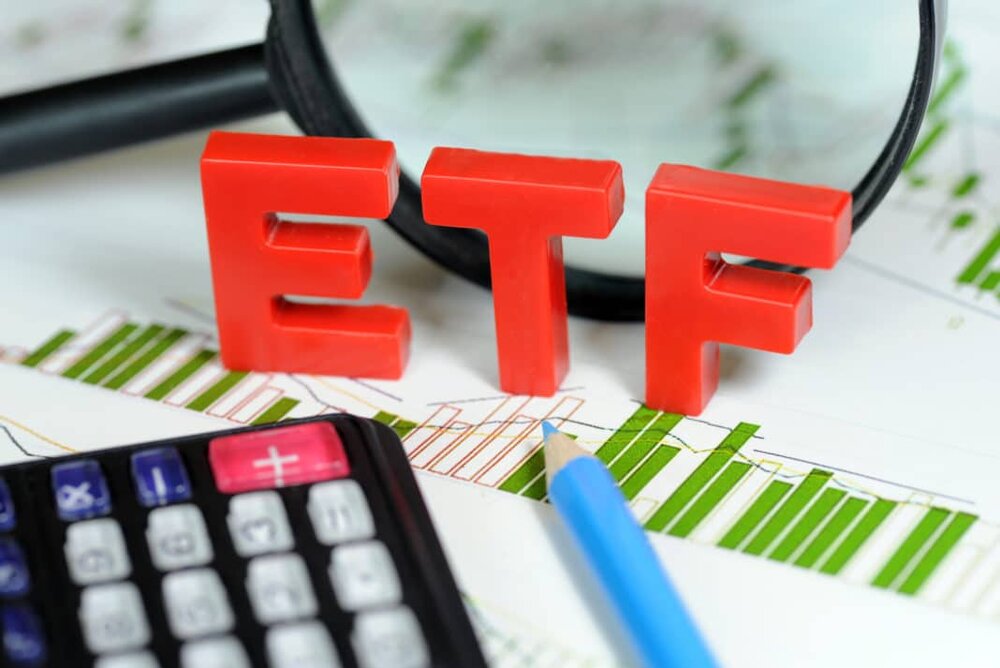
ETFs to speed up privatization, support ordinary investors

An exchange-traded fund (ETF) is an investment fund traded on stock exchanges, much like stocks. An ETF holds assets such as stocks, commodities, or bonds and generally operates with an arbitrage mechanism designed to keep it trading close to its net asset value, although deviations can occasionally occur.
As described by Investopedia, ETFs can contain many types of investments, including stocks, commodities, bonds, or a mixture of investment types. An exchange-traded fund is a marketable security, meaning it has an associated price that allows it to be easily bought and sold.
The shares to be offered via the above mentioned Iranian ETFs belong to those governmental bodies defined in Iran’s privatization program, a comprehensive plan seriously followed up by the government to downsize and reduce its role in the economy.
The three ETFs are planned to offer 550 trillion rials (about $13 billion) worth of the governmental stakes, of which 165 trillion rials (about $3.9 billion) is to be offered via the first fund.
The first ETF, established by the Ministry of Finance and Economic Affairs, comprises government shares in three banks, including Bank Mellat, Tejarat Bank, and Bank Saderat, as well as the shares of two insurance companies, i.e. Iranian Reinsurance Company and Alborz Company.
The government has a 17-percent stake in Bank Mellat, a 17-percent stake in Tejarat Bank, and an 18-percent stake in Bank Saderat.
While the individual traders can subscribe for the shares offered via the ETF, the institutional shareholders are not allowed.
Subscription has started on May 3 and will continue until the end of the current Iranian calendar month (May 20).
The highest amount for a subscription is 20 million rials (about $476) for each individual with a national code, and the prominent feature of this offering is the allocation of a 20-percent discount for Iranian people of any age.
It is why many economists and financial experts say that the concept of launching these ETFs is to support the ordinary people’s contribution to the stock market activities.
While meeting the satisfaction of people and encouraging them to invest in the stock market, the establishment of the ETFs is also said to be a promising step in the process of the privatization plan.
While, the law on the implementation of the general policies of Article 44 of Iran's Constitution on privatizing state-owned companies was declared in 2006 in a bid to downsize the government and promote the private sector’s role in the national economy, since then, the privatization process has been facing several challenges in the country, and has fallen behind schedule, drawing attention to the fact that urgent action should be done in this due.
President Hassan Rouhani has recently instructed Finance and Economic Affairs Minister Farhad Dejpasand that the process of divesting state shares should be expedited and the proper ground should be rapidly laid in the stock market to this end.
Now, it seems that the ETFs can play an effective role in materializing this objective, and while facilitating investment making at the stock market for the ordinary people, they are expected to speed up the privatization program.
Although, given the structure of these funds into account, people are advised to become completely familiar with the related process first and then take action for investment making.


Trump weighs using $2 billion in CHIPS Act funding for critical minerals

Codelco cuts 2025 copper forecast after El Teniente mine collapse

Electra converts debt, launches $30M raise to jumpstart stalled cobalt refinery

Barrick’s Reko Diq in line for $410M ADB backing

Abcourt readies Sleeping Giant mill to pour first gold since 2014

Nevada army depot to serve as base for first US strategic minerals stockpile

SQM boosts lithium supply plans as prices flick higher

Viridis unveils 200Mt initial reserve for Brazil rare earth project

Tailings could meet much of US critical mineral demand – study

Kyrgyzstan kicks off underground gold mining at Kumtor

Kyrgyzstan kicks off underground gold mining at Kumtor

KoBold Metals granted lithium exploration rights in Congo

Freeport Indonesia to wrap up Gresik plant repairs by early September

Energy Fuels soars on Vulcan Elements partnership

Northern Dynasty sticks to proposal in battle to lift Pebble mine veto

Giustra-backed mining firm teams up with informal miners in Colombia

Critical Metals signs agreement to supply rare earth to US government-funded facility

China extends rare earth controls to imported material

Galan Lithium proceeds with $13M financing for Argentina project

Kyrgyzstan kicks off underground gold mining at Kumtor

Freeport Indonesia to wrap up Gresik plant repairs by early September

Energy Fuels soars on Vulcan Elements partnership

Northern Dynasty sticks to proposal in battle to lift Pebble mine veto

Giustra-backed mining firm teams up with informal miners in Colombia

Critical Metals signs agreement to supply rare earth to US government-funded facility

China extends rare earth controls to imported material

Galan Lithium proceeds with $13M financing for Argentina project

Silver price touches $39 as market weighs rate cut outlook

















